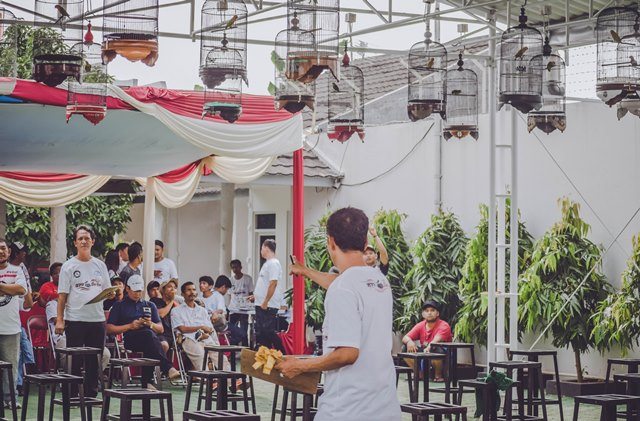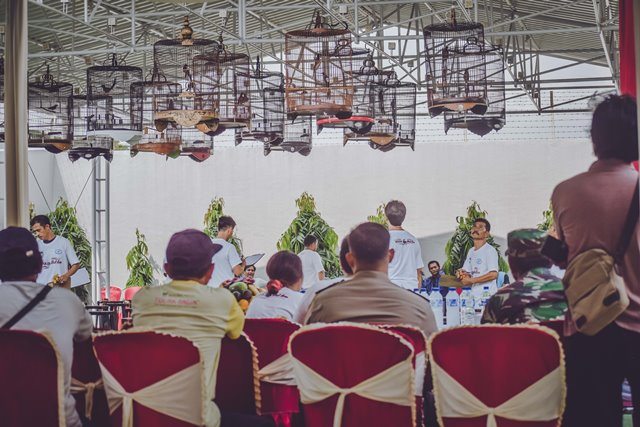Bird trainers, almost always young men (there is an old saying in Indonesia that a man is only considered a real man if he has a house, a wife, a horse, a dagger and a bird), carry their beautifully carved, ornate cages into a small outdoor arena and hang them alongside dozens of others, all containing chirping songbirds that are to compete in a singing competition.
The contest gets underway and the men begin to yell, scream, whistle and clap to encourage their feathered protégés into continuous song. It’s a scene more associated with a crowd at a frenzied boxing match or the trading floor of the New York Stock Exchange.
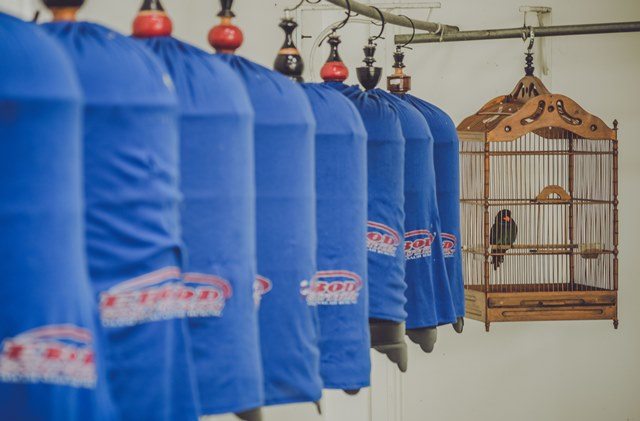

A team of judges, armed with clipboards, pace back and forth pausing momentarily under each cage to somehow distinguish individual birdsong from the cacophony. Beneath each cage is a stool upon which each of the judges places their ribbons of distinction – denoting the bird they deem to have the most impressive song. Points are awarded for melody, duration and volume.
Several minutes of frenzied chirping later and the winning trainer is declared. Promo girls step forth to pose for photos and present trophies and cheques and then it’s on to the next category. More birds are brought in and the noise begins again.
Contests like this one are regulated and will only permit entry to captive-bred birds, with organisers insisting on seeing paperwork proof and breeding licenses before allowing entry.
However, given the huge prize-pots, and glory, at stake, some bird singing enthusiasts stop at nothing to get their hands on the birds they deem to be the best. Most of the bigger contests, which draw competitors from as far afield as Thailand, Malaysia and Vietnam and which can offer top prizes of $50,000, will often be filled with birds taken illegally from the wild.
Many believe the wild caught birds sing more loudly. And, even in competitions where the prize money isn’t as big, the value of a bird can rise dramatically on the back of a win. The ‘sport’ is increasing in popularity and is endangering already threatened species that have been pushed to brink by a culture of bird-keeping that is deeply embedded in Indonesian society.
Trends for keeping certain birds mean that a number of species are in real danger of being wiped out. Some are now more readily found in bird markets like Pramuka in Jakarta – than in the forests.
The trade in songbirds in Indonesia has reached a tipping point that threatens to drive many species to extinction. Millions are captured illegally every year. It’s a conservation crisis that’s largely being ignored.
We won’t stand back and let these beautiful birds disappear from our planet. It’s now or never. It’s time to act for songbirds.
BBC – Our World
BBC science reporter, Vic Gill, recently visited Indonesia with our Chester Zoo team to discover more about the songbird crisis, the threats these precious birds are facing and what’s being done to save them.
She spent time with our project partners, Cikananga Conservation Breeding Centre, and the experts that are working around the clock to protect some of the rarest species on the planet.
You can watch the documentary BBC iPlayer now.
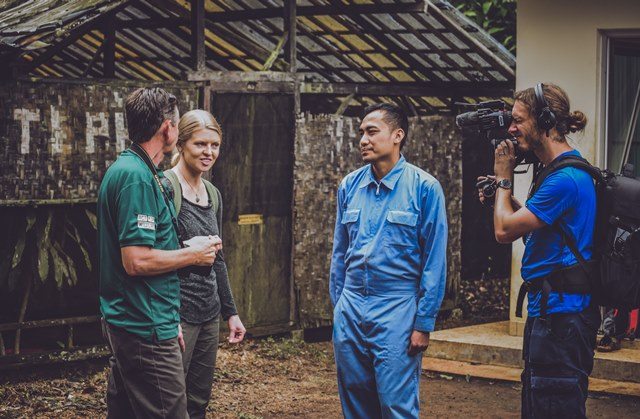
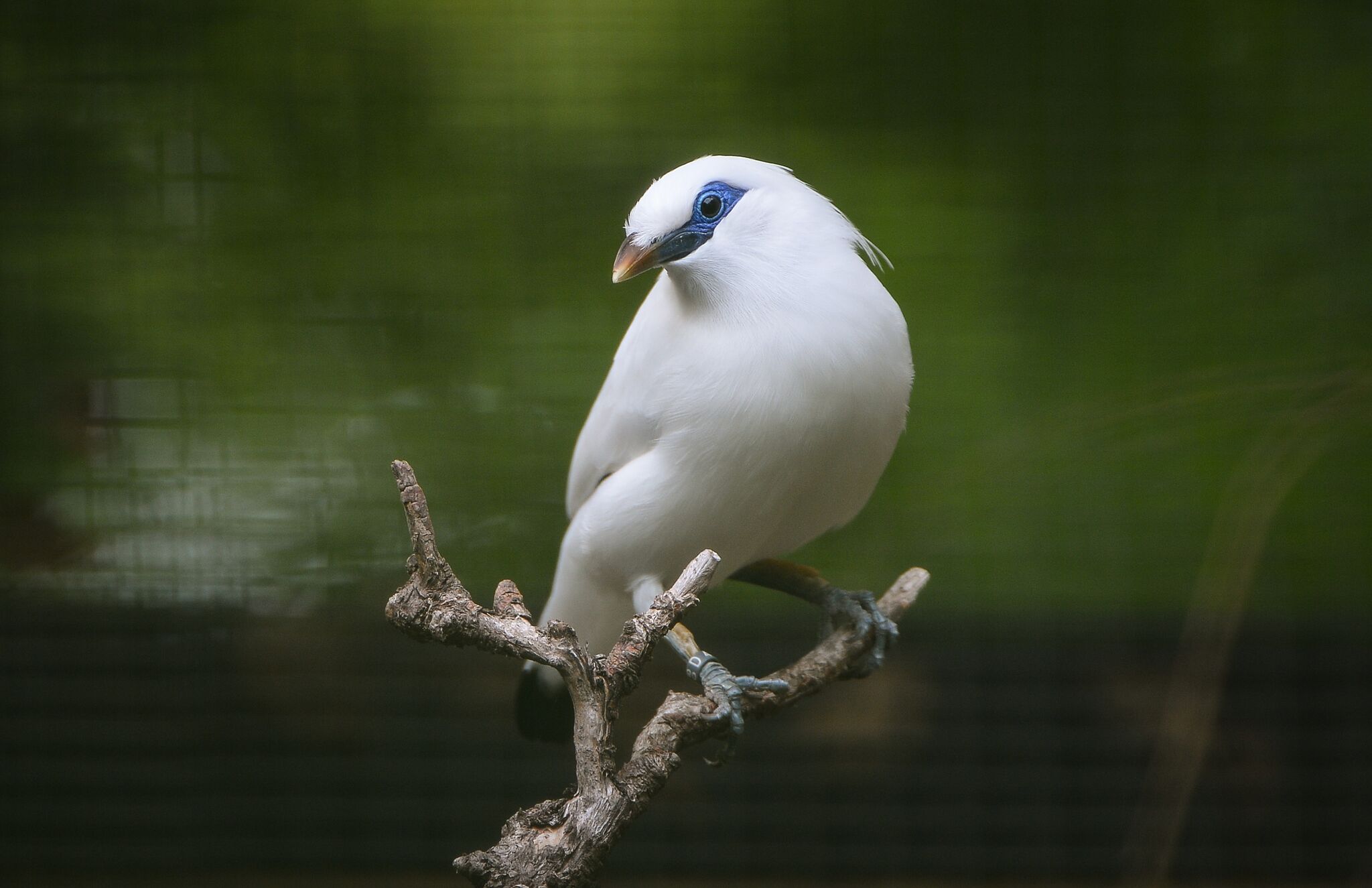
Donate to Indonesian Songbirds
Donate to our songbird project and 100% of your money will be used to help save songbirds in the wild.
